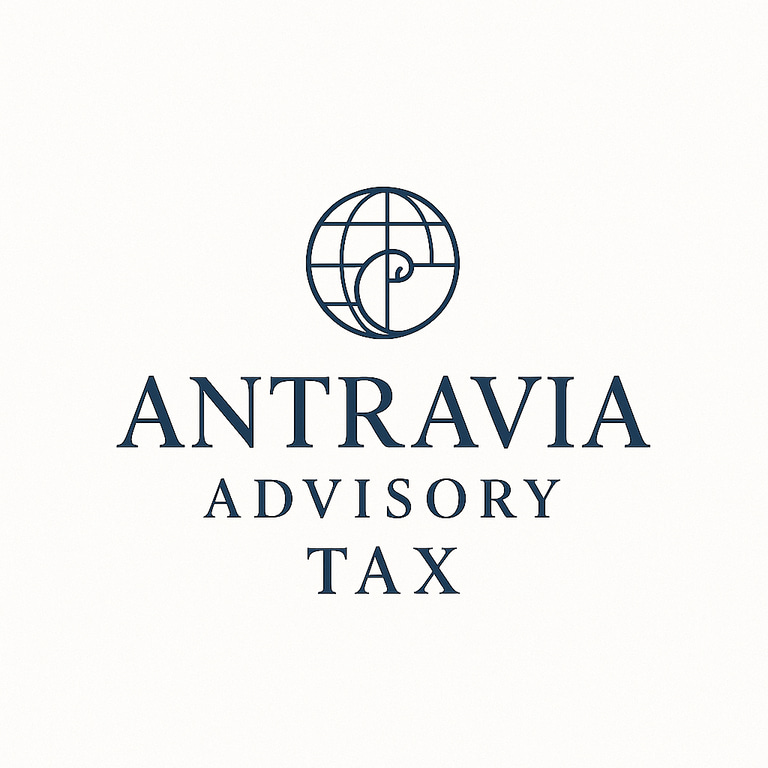🌍 Worldwide VAT for Travel Businesses
Understanding Global VAT, GST, and Consumption Tax Rules Beyond U.K. and Europe
Practical VAT & GST guidance for hotels, travel agents, tour operators, DMCs, and OTAs.
VAT.travel brings together Antravia’s real-world VAT expertise for the travel industry. We explain how VAT works in the day to day, from booking flows and commissions to refunds, deposits, and cancellations. Our focus on this site is Worldwide, with guidance relevant to any business that touches VAT or GST.
Global VAT and GST rules now affect every part of the travel supply chain, from hotel bookings to inbound tour operations and destination events. More than 170 countries operate a consumption-tax system, yet each applies different rules on registration, refund rights, digital reporting, and what counts as a taxable presence. These differences create real financial risk for hotels, travel agents, DMCs, and event organisers working across borders.
This Antravia guide summarises the major non-EU regimes that travel businesses encounter most often, including the UAE’s 5 percent VAT system and upcoming e-invoicing mandate, Japan’s consumption tax and Qualified Invoice System, Australia and New Zealand’s GST frameworks, Canada’s layered GST/HST rules, and Iceland’s VAT treatment of tourism. Each section sets out registration triggers, refund positions for foreign companies, invoicing rules, and common traps for cross-border sellers.
The page also highlights how e-invoicing and structured digital reporting are expanding across the Middle East and Asia-Pacific, and what travel businesses should prepare for when contracting internationally.
Antravia Advisory supports hotels, tour operators, and agencies in more than 30 jurisdictions, helping them understand liability, structure supply chains, review invoices, coordinate VAT and GST registrations, and prepare for upcoming digital-tax changes. For specialist support tailored to your markets, contact us.
Worldwide VAT for Travel Businesses
VAT & TOMS -
How Antravia helps
Where Travel meets Smart Finance
VAT Health Check
A short review of supplies, invoicing, and filings to highlight risks and missed recovery.
Non-resident VAT, fiscal reps, return preparation, corrections.
Employee travel, events, exhibitions, and supplier invoices across the UK/EU
See VAT Reclaim for more info.
Registrations & filings (UK/EU)
VAT Reclaim
“What’s Next” Consultation
Not sure where to start?
Book a free 15-minute call with Antravia. We’ll outline your current exposure and the simplest route to full compliance

United Arab Emirates (UAE) – VAT
Introduced: 2018
Standard Rate: 5%
Authority: Federal Tax Authority (FTA)
The UAE operates a modern VAT framework modelled broadly on European systems, but with local variations relevant to tourism.
Scope for Travel and Hospitality
Accommodation (hotels, resorts, serviced apartments): taxable at 5% plus local municipality/tourism fees (differ by emirate).
Hospitality services: F&B, events, banqueting, spa services, and resort fees are all taxable.
Inbound travel packages: If the consumption occurs inside the UAE, VAT applies even when booked by non-UAE agents.
Outbound services: Zero-rated if the customer is outside the UAE and the benefit is enjoyed outside the country.
Refunds for Foreign Businesses - See UAE VAT Reclaim
Refunds are available under the UAE Foreign Business Refund Scheme, but the conditions are strict:
No fixed place of business or establishment in the UAE
Not registered for VAT locally
Must be legally established in a country that offers reciprocal refunds
Must meet invoice and payment requirements
E-Invoicing Mandate (2026–2027)
A significant change for hotels and DMCs:
Ministerial Decisions 243 & 244 (2025) introduce structured e-invoicing
Phase 1: Large taxpayers (≥ AED 50m revenue)
Phase 2: All remaining VAT-registered businesses
Mandatory XML-based invoice format
Real-time reporting to accredited platforms
Hotels must integrate PMS, POS, and accounting systems before go-live
Antravia helps: UAE hotels and DMCs review invoicing systems, prepare for e-invoicing, and optimise refund claims for foreign event organisers.

Japan – Consumption Tax (JCT)
Introduced: 1989
Standard Rate: 10%
Reduced Rate: 8% (food, newspapers)
Authority: National Tax Agency (NTA)
Japan’s consumption tax functions similarly to VAT but has unique registration and invoicing requirements.
Scope for Travel Businesses
Accommodation, domestic tours, transport, and on-the-ground services are taxable at 10%.
Foreign suppliers are generally not required to register unless they have a permanent establishment or supply B2B digital services.
Inbound event expenses (venues, catering, AV, hotels): typically non-recoverable for foreign businesses.
Refund Position
Japan does not offer direct JCT refunds to foreign companies. Refunds are only possible by:
Using a Japan-based registered intermediary, or
Structuring contracts so the Japanese entity purchases on behalf of the foreign client.
Qualified Invoice System (2023)
To claim input tax:
Supplier must have a JCT registration number
Invoices must list each item with the applicable rate
Hotels and DMCs must update invoice templates
Antravia helps: firms determine whether JCT applies to their contracting model and assess documentation for any reclaim opportunity.

Australia (GST)
Introduced: 2000
Standard Rate: 10%
Authority: Australian Taxation Office (ATO)
Australia’s GST regime is extensive and particularly relevant for tour operators managing inbound traffic.
Tax Treatment of Travel Services
Accommodation, domestic tours, car hire, events, and transport consumed in Australia are taxable.
Exports of services (e.g., selling Australian travel to overseas consumers) may be zero-rated if the service is supplied to a non-resident and used outside Australia.
Inbound Tour Operators (ITOs) may apply the Margin Scheme for travel packages, but conditions are strict and documentation must be exact.
Registration Rules for Foreign Suppliers
Non-resident businesses must register if:
They provide taxable supplies connected with Australia, or
Annual turnover exceeds AUD 75,000 (GST-exclusive).
Refund Rights
Foreign event organisers cannot generally reclaim GST unless registered.
GST on hotel rooms and local services typically becomes a cost unless correctly structured.
E-Invoicing
Australia uses PEPPOL standards. Adoption is optional but expanding; compulsory phases may follow.
Antravia helps: evaluate the benefit of voluntary registration and determine eligibility for GST margin schemes.

New Zealand (GST)
Introduced: 1986
Standard Rate: 15%
Authority: Inland Revenue (IRD)
New Zealand’s GST system is one of the most comprehensive.
Key Points for Travel Businesses
All domestic services including tours, hotels, and transport attract GST.
Since 2019, non-resident suppliers of remote services (including OTAs and booking platforms) must register if turnover exceeds NZD 60,000 annually.
Digital platforms supplying accommodation must apply GST in many cases.
Refund Rights
Foreign businesses generally cannot reclaim GST.
However, inbound tour operators may zero-rate certain services supplied to overseas travel agents if:
The service is supplied to a non-resident, and
The recipient is outside NZ at the time of supply.
Correct structuring is essential to avoid double taxation.
Antravia helps: tour operators apply zero-rating correctly and avoid GST leakage.

Canada (GST - HST - QST)
Introduced: 1991
Rates: 5% GST (federal)
Up to 15% HST in participating provinces
Additional QST in Québec
Canada’s system is layered and requires precise analysis of where the service is consumed.
Tax Treatment
Hotels: GST or HST applies depending on the province.
Travel agents and DMCs: must determine the “place of supply” rule to identify the correct rate.
Event organisers: local expenses (hotels, catering, venue hire) carry provincial tax combinations.
Registration for Non-Residents
You may need to register if:
You sell taxable services to Canadian consumers, or
You carry on business in Canada (a broad definition).
Refund Options - See VAT Reclaim
Canada offers a unique mechanism:
Foreign Convention and Tour Incentive Program (FCTIP) — allows refunds of GST/HST on certain accommodation and tour packages for non-resident groups.
Documentation must be perfect, especially for hotel invoices.
Antravia helps: interpret provincial rules, determine if FCTIP applies, and prepare compliant documentation.
VAT for UK Travel Agents and Tour Operators: What you need to know about TOMS
Understand how VAT and the Tour Operators’ Margin Scheme (TOMS) affect UK travel agents. Learn how to stay compliant and protect your margins. Link
Inside the Hotelbeds VAT Case: Lessons for Every UK Travel Business | Antravia UK
An inside look at the Hotelbeds VAT case and what it teaches about invoice control, TOMS, and VAT recovery for UK travel businesses. Link
Voluntary Disclosure: Fixing Sales Tax Mistakes Without Penalties
Missed sales tax registrations or filings? Learn how voluntary disclosure agreements (VDAs) can help travel agents and hotels fix past mistakes, reduce penalties, and protect your business reputation. Link
Featured Guides
Industry Updates
Not sure where to start? Antravia free Consultation
Disclaimer:
Content published by Antravia is provided for informational purposes only and reflects research, industry analysis, and our professional perspective. It does not constitute legal, tax, or accounting advice. Regulations vary by jurisdiction, and individual circumstances differ. Readers should seek advice from a qualified professional before making decisions that could affect their business.
See also our Disclaimer page
Antravia Advisory
Where Travel Meets Smart Finance
Not legal advice, always verify with your Accountant
Email:
Contact us:
Antravia LLC
© 2025. All rights reserved. | Disclaimer | Privacy Policy | Terms of Use |
© 2025 USSales.tax — part of the Antravia Group.
Antravia.com | Antravia.co.uk | Antravia.ae | Finance.travel | Tax.travel
contact@antravia.com
Antravia LLC
4539 N 22nd St., Ste. N
Phoenix
Arizona
85016
















